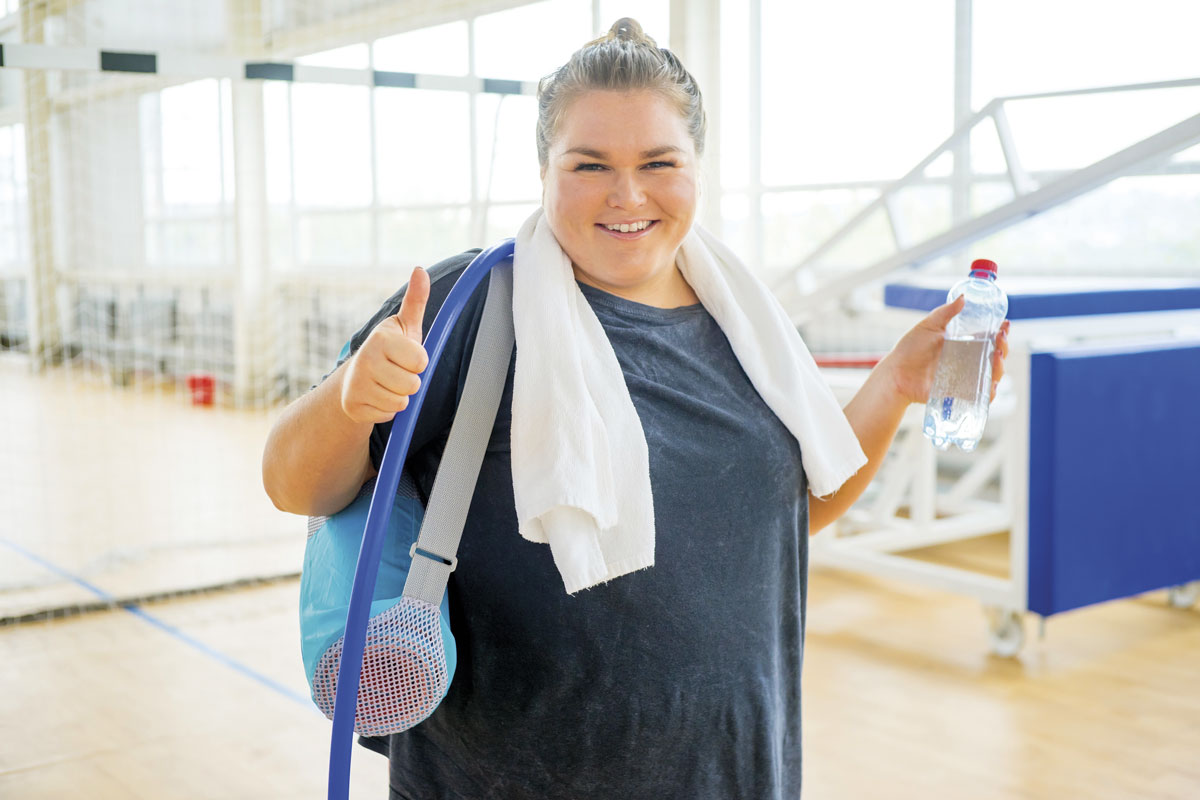 Weight and weight control are difficult conversations to have with patients, both young and old, but vitally important for their health and the health of an ageing nation. Last month we looked at the complex problem in some depth and how the subject can be made easier for both doctor and patient alike by clear, non-judgemental communication.
Weight and weight control are difficult conversations to have with patients, both young and old, but vitally important for their health and the health of an ageing nation. Last month we looked at the complex problem in some depth and how the subject can be made easier for both doctor and patient alike by clear, non-judgemental communication.
Charlyn Ooi is a paediatric dietitian and a credentialed diabetes educator, her focus is on childhood obesity and encouraging more understanding of how children become overweight.
“It can be attributed to a variety of genetic, behavioural and environmental factors including:
- Excess caloric intake
- Poor food choices including regular intake of nutrient-poor foods such as chips, pies, confectionary and sweetened drinks
- Easy access to processed and fast food
- Sedentary lifestyle
- Increase in screen time
- Epigenetics and obesogenic gene

“Addressing weight concerns in children and teenagers is a sensitive subject and can be a challenge to address. For health professionals, it is important, first and foremost, to establish a positive, trusting relationship with the child and their parents to create a safe space for discussing weight concerns.”
“Avoid making a diagnosis based on single anthropometric measurements. Use a minimum of three data points on the growth chart to make an accurate observation of the child’s growth and while approaching the discussion in an objective manner, avoid using negative terms which label the child as ‘overweight’, ‘obese’ or ‘chubby’.”
Charlyn recommends the taking of periodic weight, height and waist circumference measures for progress tracking, but warns against frequent weight checks and putting all the emphasis on weight loss. It’s about all-round health.
She also suggests avoiding labelling food as ‘junk’ or ‘treats’.
“We want children to develop positive relationships with food and focus on eating every day foods from the five core food groups that will nourish their bodies. High calorie, nutrient-poor foods are ‘sometimes food’ or ‘for special occasions only’,” she said.
“Creating new habits can be challenging and parents and children need collaborative support of a multidisciplinary approach.”
Read more about Charlyn here: https://specialistdietitian.com.au/about/
Gael Myers, from the Cancer Council of WA, says the Live Lighter campaign, which has been running now for several years, is about raising awareness of the severe health risks on unhealthy body weight.
“It exposes people to an increased risk of chronic diseases such as type 2 diabetes, heart disease and 13 cancers. We know many people want to manage their weight and they look to their GP for advice. When done the right way, initiating a brief discussion could make the world of difference to them,” she said.
“Time is tight in general practice, but evidence shows it’s possible to have effective, brief interventions within a normal consult length, by perhaps starting the conversation by asking how a patient feels about their current exercise behaviours, diet and weight.”
“This provides an opening for the patient to articulate aspects of their lifestyle they would like to change. Together you can create goals to address these issues. Patients are much more likely to adhere to goals they set themselves.”
How you communicate can be as important as the information itself.
“The aim is to empower individuals to make changes, not make them feel bad. Fundamental to this is avoiding language that reinforces weight stigma. When people experience weight stigma in a health care context it may lead to them delaying or avoiding accessing health care services in the future. Rather than blame, focus on solutions.”
As anyone who has consciously lost weight, keeping it off is another significant challenge.
“Long-term weight loss can be very difficult – especially through lifestyle alone,” Gael said.
“The typical weight-gain trajectory is gradual – about 0.5kg a year. Check if patients are happy to be weighed on an annual basis to monitor this. Early adulthood in particular is a key time for weight gain, so it’s important to emphasise weight maintenance in this group.”
Free LiveLighter resources
- Online meal planners. Please note, people with a BMI of 40-50 will be asked to speak to their doctor before starting the 12-week program. Other programs are available.
- Eat Smart/Shop Smart booklets. Eating well on a budget
- Physical activity guides and workouts.
- Recipes.
- Training. In late 2019 LiveLighter will be delivering RACGP accredited face-to-face workshops for GPs to build their skills and confidence to discuss weight management with patients
Read more about the LiveLighter here: https://livelighter.com.au/

